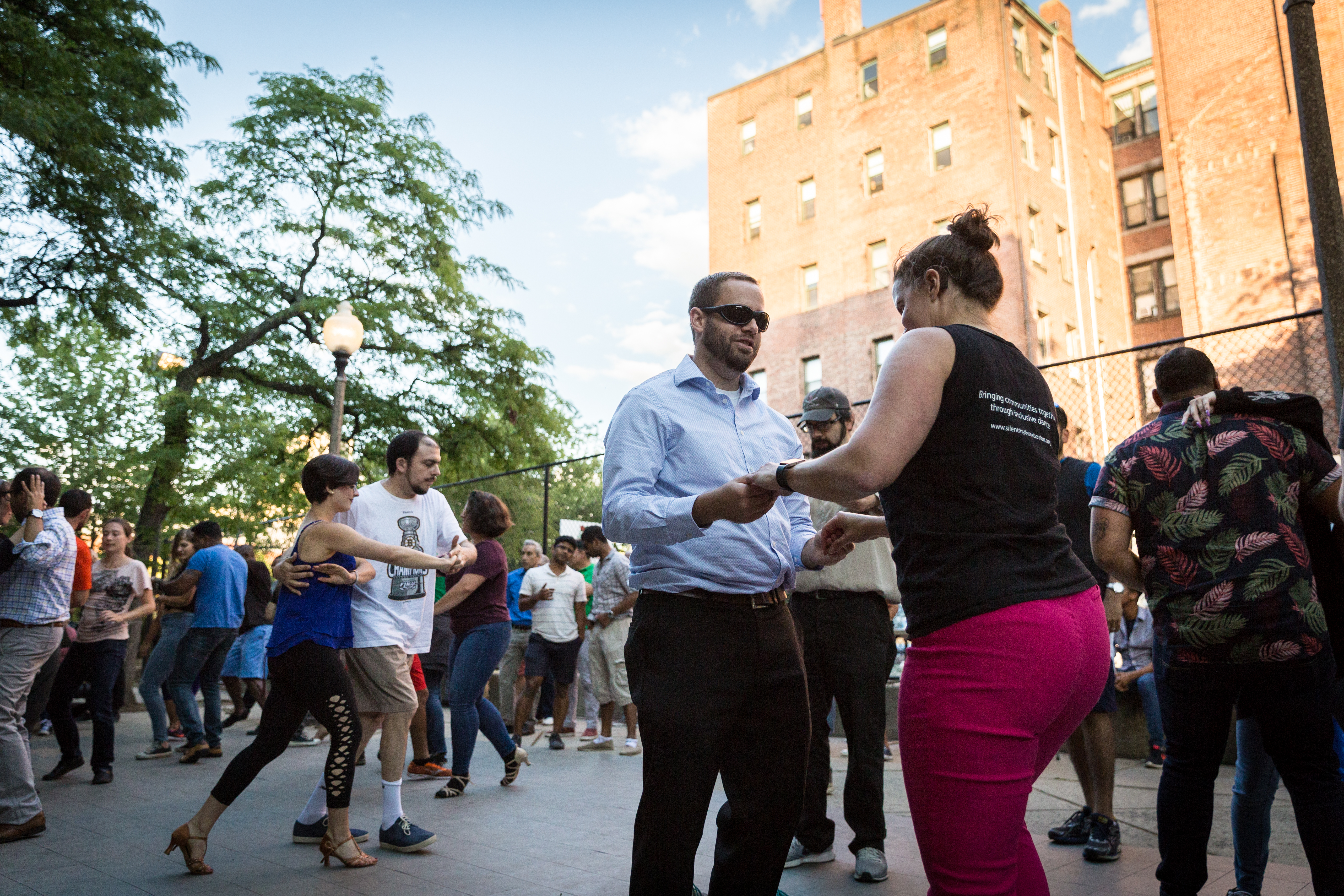
Dancing Beyond Attitudinal Barriers
My name is Brian Switzer, and I can Salsa dance thanks to Silent Rhythms. Silent Rhythms is a nonprofit dedicated to promoting the inclusion of people with disabilities in the arts. My disability is DeafBlindness, specifically, total blindness and significant hearing loss due to a condition called Usher Syndrome. As a child, I went to deaf schools followed by public schools. I now hold a Master’s degree in Public Policy focusing on disability policy. One of the biggest barriers I face in my life is the attitudinal barrier put up by society, namely, that someone with a disability cannot do anything.
Lucky for me, my parents never allowed me to fall into this trap. They encouraged me to pursue academics to the highest degree and to be involved in sports. They encouraged me to figure out for myself where I would fail and where I could succeed. This freedom to pursue my passions has allowed me to pursue dual undergraduate degrees, a Master’s degree, speak five languages, run multiple marathons, including one in the wilds of Fairbanks, Alaska, and most importantly, challenge society’s perception of what it means to be disabled.
In the same spirit, Silent Rhythms allows me to challenge society’s perception of what people with disabilities are capable of doing. This is not to say that people with disabilities can or should do absolutely everything for themselves. Instead, my point is that with the right support and a lot of understanding, people with disabilities can be successful in almost any realm. As my old sign language interpreter used to say, “You may have to do things differently, but there is always another way to do things.”
Silent Rhythms’ Executive Director, Kerry Thompson, embodies this saying. When she is teaching me how to dance, she will talk to me one-on-one and make sure that I hear everything that she is saying. She will also allow me to put my hands on her shoulders so that I can feel how the dance should be done. When I am learning a new step, she will place my hands over her hands, and she will use her hands to imitate the footsteps so that I can feel where the footsteps should land.
I have always wanted to learn to dance. Even when I was younger and still had functional vision, I could not learn how to dance on account of being night blind. The majority of dancing takes place at night in dimly lit dance clubs. Now that I am a little bit older. I am proud to say that I can do a number of Salsa and Bachata dance moves. I can even keep up with my girlfriend who has been dancing her whole life. I am thankful to Silent Rhythms for allowing me to pursue my passion and creating an inclusive environment that is conducive to people of all abilities learning how to dance.
DONATE to help Silent Rhythms, Inc. fight attitudinal barriers and creating a more inclusive society.